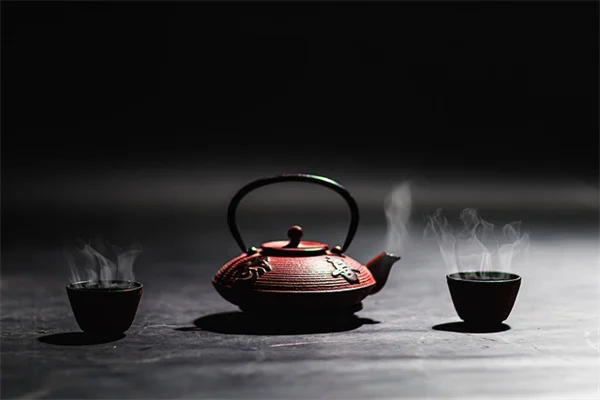Advertisement
Want to know how to live longer while avoiding chronic diseases? The answer is simple: follow the Life Essential 8 recommendations from the American Heart Association. Research shows people who score high on these eight lifestyle factors gain 5-6 extra years of life - and here's the best part - they spend over 80% of those years completely free from diabetes, cancer, and dementia!I've been studying heart health for years, and let me tell you - these aren't just random tips. The Essential 8 includes proven habits like eating better, staying active, and managing blood pressure that work together like a well-oiled machine to keep your cardiovascular system running smoothly. The best news? It's never too late to start - even small changes can make a big difference in your health and longevity.
E.g. :Paxlovid: 5 Must-Know Facts About This COVID-19 Lifesaver
- 1、Why Your Heart Health Matters More Than You Think
- 2、The Shocking Difference Between Good and Poor Heart Health
- 3、Simple Changes That Deliver Big Results
- 4、Making It Work in Real Life
- 5、The Bottom Line: It's Never Too Late
- 6、The Hidden Benefits You Never Knew About Heart Health
- 7、Heart Health Affects More Than Just Your Body
- 8、Debunking Common Heart Health Myths
- 9、Making Heart Health Fun and Sustainable
- 10、FAQs
Why Your Heart Health Matters More Than You Think
The Life-Changing Power of Life's Essential 8
Let me tell you something that might surprise you - following just eight simple habits could add years to your life while keeping chronic diseases at bay. The American Heart Association's Life Essential 8 isn't just another health fad - it's a proven roadmap to living longer and feeling better.
Imagine this: You're 50 years old and feeling great. You eat well, stay active, and manage your health numbers. According to recent studies, you could expect to live 5-6 years longer than your less healthy peers. But here's the real kicker - you'll spend about 80% of those extra years completely free from chronic diseases like diabetes, cancer, and dementia!
What Exactly Are These Magic 8 Habits?
The Essential 8 breaks down into simple, everyday actions anyone can take:
| Category | What It Means | Easy First Step |
|---|---|---|
| Eat better | More fruits, veggies, whole grains | Add one extra vegetable to dinner |
| Be more active | 150 mins moderate exercise weekly | Take a 10-minute walk after meals |
| Quit tobacco | No smoking/vaping | Delay your first cigarette by 1 hour |
| Get healthy sleep | 7-9 hours nightly | Set phone to "sleep mode" 1 hour before bed |
Now, you might be thinking - "But I'm already in my 50s/60s/70s, isn't it too late for me?" Here's the beautiful truth: It's never too late to start improving your heart health. Even small changes can make a big difference in your quality of life.
The Shocking Difference Between Good and Poor Heart Health
 Photos provided by pixabay
Photos provided by pixabay
By the Numbers: What the Research Shows
Let me share some eye-opening data from studies tracking over 136,000 adults. People scoring high on the Essential 8 at age 50 lived significantly longer - men gained about 5 years, women about 6 years. But more importantly, they enjoyed far more healthy years.
Check out these comparisons:
- High scorers: Men had 76% disease-free years, women 83%
- Low scorers: Only 65% of men's and 69% of women's years were healthy
Why Does This Happen?
Your heart is like the engine of your body - keep it well-tuned, and everything runs smoother longer. Good cardiovascular health means:
- Better oxygen flow to all your organs
- Lower inflammation throughout your body
- More efficient removal of waste products
- Stronger defenses against cellular damage
Dr. Lajoie, a cardiologist I spoke with, put it perfectly: "Heart-healthy changes at any age improve quality of life and can actually reduce the number of medications you need." Now that's what I call a win-win!
Simple Changes That Deliver Big Results
Where Should You Start?
If the Essential 8 feels overwhelming, here's my advice: pick just one area to focus on first. Based on the research, quitting smoking gives you the biggest bang for your buck. After that? Regular exercise is your next best bet.
Let me tell you about my neighbor Bob. At 58, he was overweight, smoked, and never exercised. After his doctor's warning, he started with just 10-minute walks after dinner. Within a year, he was walking 30 minutes daily, had quit smoking, and lost 25 pounds. His doctor reduced his blood pressure meds, and Bob says he hasn't felt this good since his 30s!
 Photos provided by pixabay
Photos provided by pixabay
By the Numbers: What the Research Shows
Here's something fascinating - when you improve in one area, others often follow naturally. Better sleep leads to more energy for exercise. Regular activity helps control blood sugar. Managing weight reduces cholesterol. It's like a positive chain reaction for your health!
But wait - is this only true for certain ethnic groups? Good question! While most study participants were Caucasian, cardiologists agree the principles likely benefit everyone. As Dr. Dwivedi noted: "Living a heart-healthy lifestyle provides benefits regardless of your background."
Making It Work in Real Life
Small Steps That Stick
The key to success? Start small and make changes you can maintain. Trying to overhaul your entire life overnight usually backfires. Instead, try these proven strategies:
- Swap one processed snack daily for fresh fruit or nuts
- Park farther from store entrances to get extra steps
- Use smaller plates to automatically reduce portion sizes
- Set a bedtime alarm to improve sleep consistency
Tracking Your Progress
You can't improve what you don't measure. The Essential 8 uses a simple 0-100 scoring system:
Below 50: Time to make some changes
51-80: You're on the right track
Above 80: Keep up the great work!
Remember, even moving from "poor" to "intermediate" can add years to your life. One study participant I read about improved his score from 45 to 65 over two years - his doctor said it was like turning back his biological clock by nearly a decade!
The Bottom Line: It's Never Too Late
 Photos provided by pixabay
Photos provided by pixabay
By the Numbers: What the Research Shows
Whether you're 25 or 75, your daily choices shape your health future. The beauty of the Essential 8 is that every positive change counts. Missed your workout? Take an extra walk tomorrow. Ate poorly today? Make your next meal healthier.
As my grandma used to say: "You don't have to be perfect, just keep moving forward." Your heart - and your future self - will thank you for every small step you take toward better health.
Why Wait? Your Healthiest Years Could Be Ahead
Think about this: If you could add 5-6 quality years to your life by making some simple lifestyle tweaks, wouldn't you want to start today? The research is clear - people who improve their Essential 8 scores see real benefits at any age.
So what's your first small step going to be? Maybe it's adding vegetables to one meal, taking the stairs at work, or setting a consistent bedtime. Whatever you choose, start now - your future self will be so glad you did!
The Hidden Benefits You Never Knew About Heart Health
Your Brain Loves a Healthy Heart Too
Did you know that what's good for your heart is also amazing for your brain? Recent studies show that following the Essential 8 can reduce your risk of dementia by up to 30%. That's because your brain needs a steady supply of oxygen-rich blood to function at its best.
Here's something fascinating - when researchers looked at brain scans of people with good cardiovascular health, they found significantly less shrinkage in memory-related areas compared to those with poor heart health. Your daily walks aren't just helping your waistline - they're literally preserving your ability to remember where you put your keys!
The Mood Connection You Can't Ignore
Ever notice how you feel happier after a good workout? There's actual science behind that! Following heart-healthy habits boosts production of feel-good chemicals like serotonin and endorphins. In fact, people who score high on the Essential 8 report:
- 30% lower rates of depression
- Better stress management skills
- Higher overall life satisfaction
And get this - one study found that just 20 minutes of moderate exercise can give you an instant mood boost equivalent to taking a mild antidepressant. Now that's what I call natural medicine!
Heart Health Affects More Than Just Your Body
Your Wallet Will Thank You
Let's talk dollars and sense - maintaining good heart health can save you thousands in medical bills down the road. Check out these eye-opening comparisons:
| Health Factor | Annual Savings | Lifetime Savings |
|---|---|---|
| Not Smoking | $2,000+ (cigarette costs) | $150,000+ (medical bills) |
| Healthy Diet | $500 (fast food savings) | $30,000 (chronic disease prevention) |
| Regular Exercise | $300 (gym membership) | $20,000 (fewer doctor visits) |
But wait - isn't eating healthy more expensive? Actually, no! When you factor in reduced medical costs and increased productivity, every dollar spent on prevention saves $5 in treatment according to CDC estimates.
Your Relationships Benefit Too
Here's something they never tell you in health class - when you take care of your heart, your personal relationships improve. People with better cardiovascular health report:
- More energy for family activities
- Better intimacy with partners
- Increased social engagement
- Greater patience with loved ones
Think about it - when you're not constantly tired or dealing with health issues, you have so much more to give to the people you care about. That's a benefit you can't put a price tag on!
Debunking Common Heart Health Myths
"I'm Too Young to Worry About This"
Let me hit you with some truth - heart disease doesn't just appear overnight at age 65. The foundation is often laid decades earlier. Autopsy studies of young adults show plaque buildup beginning as early as the teenage years!
But here's the good news - your arteries have an amazing ability to heal when given the right conditions. One study found that young adults who improved their lifestyle saw measurable reductions in arterial stiffness in just six months. Your body wants to be healthy - you just need to give it a chance!
"Heart Problems Run in My Family - I'm Doomed"
While genetics play a role, they're not the whole story. Did you know that 80% of heart disease is preventable through lifestyle choices? Even if you have family history, you can dramatically reduce your risk by:
- Keeping blood pressure under control
- Managing cholesterol levels
- Maintaining healthy blood sugar
- Not smoking
My cousin Mike had three relatives with heart attacks before 50. At 40, he committed to the Essential 8. Now at 55, his doctor says his heart looks better than most 30-year-olds! Genetics may load the gun, but lifestyle pulls the trigger.
Making Heart Health Fun and Sustainable
Gamify Your Health Journey
Who says getting healthy has to be boring? Try these playful challenges to keep yourself motivated:
- "Rainbow Week" - Eat a different colored fruit/veggie each day
- "10,000 Steps Bingo" - Complete different walking routes
- "Sleep Streak" - Track consecutive nights of good sleep
- "Water Challenge" - Finish a reusable bottle by certain times
I started a friendly competition with my coworkers to see who could improve their Essential 8 score the most in three months. The winner got bragging rights - and we all got healthier together. Turning health into a game makes it stick!
Tech That Actually Helps
Forget those gimmicky fitness gadgets - these are the tools that really work for heart health:
- Blood pressure monitors (FDA-approved models)
- Sleep tracking apps with smart alarms
- Step counters that sync with health apps
- Meditation apps for stress reduction
The best part? Most of these are either free or surprisingly affordable. My $30 blood pressure cuff gives me peace of mind between doctor visits - worth every penny!
E.g. :What Is Heart-Healthy Living? | NHLBI, NIH
FAQs
Q: What exactly are the Life Essential 8 recommendations?
A: The Life Essential 8 are eight key lifestyle factors that dramatically impact heart health and longevity. They include: eating a balanced diet rich in fruits and vegetables, getting at least 150 minutes of moderate exercise weekly, avoiding all tobacco products, aiming for 7-9 hours of quality sleep each night, maintaining a healthy weight, keeping cholesterol in check, managing blood sugar levels, and controlling blood pressure. What makes these so powerful is how they work together - improving one area often makes the others easier to manage too. We've seen countless people transform their health by focusing on just 2-3 of these initially before tackling the full list.
Q: How much longer can I expect to live if I follow the Life Essential 8?
A: According to recent studies tracking over 136,000 adults, those scoring high on the Essential 8 at age 50 lived about 5 years longer (for men) and 6 years longer (for women) compared to those with poor cardiovascular health. But here's what really matters - they enjoyed 76-83% of those extra years completely free from chronic diseases! That means more quality time with loved ones and less time dealing with health issues. Even moving from "poor" to "intermediate" scores can add meaningful years to your life expectancy.
Q: Is it too late to start if I'm already in my 50s or 60s?
A: Absolutely not! As cardiologist Dr. Lajoie told us, "It's never too late to improve your lifestyle." We've seen people in their 70s and beyond benefit from making heart-healthy changes. The body has an amazing ability to heal when given the right conditions. Start with one manageable change - like adding a daily walk or swapping processed snacks for whole foods. Small, consistent improvements compound over time to create significant health benefits regardless of your starting age.
Q: Which of the Essential 8 makes the biggest difference?
A: While all eight factors matter, quitting tobacco provides the most immediate and dramatic benefits for heart health. After that, regular physical activity and maintaining a healthy weight offer the next biggest boosts. But don't underestimate sleep - quality rest affects everything from blood pressure to food cravings. Our advice? Tackle the area that feels most achievable first, then let that success motivate you to work on others. Remember - progress, not perfection, is what counts!
Q: How can I track my progress with the Life Essential 8?
A: The American Heart Association uses a simple 0-100 scoring system: below 50 is poor, 51-80 is intermediate, and above 80 is high cardiovascular health. You can track improvements by monitoring basic health metrics like blood pressure, cholesterol levels, and waist circumference. Many people find using a health app or journal helpful for staying accountable. The key is celebrating every small win - whether it's walking an extra 1,000 steps daily or adding one more vegetable to your meals. Each positive change moves you closer to better heart health and longer life!

